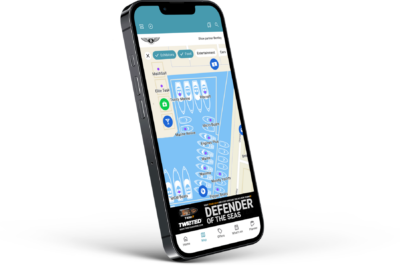Learn everything there is to know about the difference between a Visa, Green Card, and U.S. citizenship.
The United States is one of the most popular countries around the world with well over 20 million international visitors on a yearly basis and a stable population of around 331 million people. For some visitors, deciding to make the United States their new home may be of interest. There are a variety of ways to go about this, however, and it’s important to pick the option that allows you to legally settle in the country for the maximum amount of time. Learn everything there is to know about the difference between a Visa, Green Card, and U.S. citizenship to understand which path is right for you.
What is a Visa
Serving as the most basic form of admittance into the United States, a Visa simply is a document given to a foreign traveler which allows that person to access the United States through a port of entry such as an airport, harbor, or land border crossing. In the vast majority of cases, a Visa will have an end date that will vary depending on the type of Visa that has been issued in the first place.
Three different types of Visas
As mentioned, there are a number of different types of Visas that a person could consider applying for depending on their reason for visiting the United States:
Tourist Visa
One of the most common types of Visas available, the United States tourist Visa B allows a person to enter the country temporarily to go on vacation, visit friends or family, and even to seek medical treatment. Generally, this Visa is issued with an expiration date of six months but there are certain versions which can be valid for as long as 10 years.
Business Visa
Serving as another extremely common Visa, the B-1 Visa allows people to temporarily engage in business activities such as consulting, participating in educational seminars, scientific work, negotiating contracts, and other forms of business are allowed. Given the nature of your visit, the length of your Visa may be as short as one month or as long as six months, sometimes being even longer.
Transit Visa
A United States Visa C is a nonimmigrant Visa given to those who are passing through the United States on their way to another country. Generally, transit Visas are only granted when a person is leaving the United States after arriving in a reasonable amount of time. An example of this could include a layover for a couple of day or waiting on a boat to depart.
What is a green card
In some cases, a person crossing into the United States may wish to seek permanent residency, which comes from holding a green card. This document allows a person to both work and live permanently in the United States as a non-citizen and opens up the door to potentially becoming a citizen in the near future.
Different types of green cards
There are a number of different types of green cards that a person can consider applying for depending on their specific situation:
Green card via family
For those individuals who are the immediate family members of a U.S. citizen or for those who are spouses or fiancés to an American citizen, a green card via family may be something you are eligible for. Generally, the person who you are related to must either be a spouse or a parent/child, rather than a more distance family member such as a cousin.
Green card via employment
While work visas do exist, a green card may be issued for employment circumstances. Typically, a person must be the top of their field or possess an advanced degree which allows them to perform a job which not many people can undertake. Additionally, certain career paths such as doctors or international workers may allow for a green card to be granted.
Green card via special circumstances
For those who are religious workers in the employment of a nonprofit organization, juveniles seeking asylum from abusive situations, or certain international workers, a green card via special circumstances may be a potential option.
Green card via refugee
In some cases, refugees who are seeking asylum from the conditions of their home country, such as war, poverty, or general socioeconomic circumstances, may be granted a green card that allows for permanent residency. The qualifications for green card via refugee tend to be stricter than other categories.
Green card via crimes
Finally, those who have been the victim of a crime such as human trafficking, abuse, or another similar crime in their home country may be granted asylum in the United States.
The path to citizenship: What you need to know
To become a citizen of the United States when you weren’t born in the country, the ten steps of naturalization must be followed in order to be approved:
1. Determine if you are already a United States citizen
2. Check your eligibility to become a United States citizen
3. Prepare your application for naturalization by filling out a form N-400
4. Submit your form N-400 and pay any applicable fees
5. Head to your biometrics appointment if applicable
6. Complete your naturalization interview and demonstrate your knowledge of U.S. history and English
7. Receive a decision from the USCIS on your application for naturalization
8. Be given a date to take your Oath of Allegiance to the United States
9. Take your Oath of Allegiance
10. Read about the many benefits to U.S. citizenship
The bottom line
Regardless of whether you choose to pursue residency in your new home via a Visa, Green Card, or citizenship, ensure you follow the law to avoid being removed and banned from the country. Should you find that the authorities wrongly handled your situation, don’t hesitate to contact an immigration lawyer as soon as possible who can defend your rights. The process of remaining in the United States is challenging, so having effective legal counsel who can go to bat on your behalf can help to ease the struggle.
To become a citizen of the United States when you weren’t born in the country, the ten steps of naturalization must be followed in order to be approved:
- Determine if you are already a United States citizen
- Check your eligibility to become a United States citizen
- Prepare your application for naturalization by filling out a form N-400
- Submit your form N-400 and pay any applicable fees
- Head to your biometrics appointment if applicable
- Complete your naturalization interview and demonstrate your knowledge of U.S. history and English
- Receive a decision from the USCIS on your application for naturalization
- Be given a date to take your Oath of Allegiance to the United States
- Take your Oath of Allegiance
- Read about the many benefits to U.S. citizenship
The bottom line
Regardless of whether you choose to pursue residency in your new home via a Visa, Green Card, or citizenship, ensure you follow the law to avoid being removed and banned from the country. Should you find that the authorities wrongly handled your situation, don’t hesitate to contact an immigration lawyer as soon as possible who can defend your rights. The process of remaining in the United States is challenging, so having effective legal counsel who can go to bat on your behalf can help to ease the struggle.



























































































































